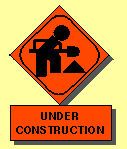
(pp v-vii)
| Welcome to the book Civics and Health (1909), by Dr. William H. Allen. To go to the "Table of Contents" immediately, click here. To go immediately to Chapter 36, on Tobacco, click here.
Tobacco pushers and their accessories in politics conceal the breadth of tobacco effects, the enormity of the tobacco holocaust, and the long record of documentation. The concealment process is called the "tobacco taboo." Other pertinent words are "censorship" and "disinformation." Here is the text by Dr. William H. Allen of a civics and health book with a chapter on tobacco dangers. It cites facts you don't normally ever find reported, due to the "tobacco taboo." The phrase "tobacco taboo" is the term for the pro-tobacco media's censorship policy—to not report most facts about tobacco. As you will see, information about the tobacco danger was already being circulated in 1909, 55 years before the famous 1964 Surgeon General Report. Be prepared. For titles of more books in this educational series, click here. |
Civics and Health
by William H. Allen, Ph.D.
(Boston: Ginn & Co., 1909)

WILLIAM T. SEDGWICK
| MASSACHUSETTS INSTITUTE OF TECHNOLOGY |
| |
| Introduction by MIT Biology Prof. Sedgwick | v
| PART I. HEALTH RIGHTS |
| I. Health A Civic Obligation | 3
| II. Seven Health Motives And Seven Catchwords |
| III. What Health Rights Are |
| IV. The Best Index To Community Health Is The
|
| PART II. HEADING THE | INDEX TO HEALTH RIGHTS V. Mouth Breathing |
| VI. Catching Diseases, Colds, Diseased Glands |
| VII. Eye Strain |
| VIII. Ear Trouble, Malnutrition, Deformities |
| IX. Dental Sanitation |
| X. Abnormally Bright Children |
| XI. Nervousness of Teacher and Pupil |
| XII. Health Value Of "Unbossed" Play |
| XIII. Vitality Tests and Vital Statistics |
| XIV. Is Your School Manufacturing Physical Defects? |
| XV. THE TEACHER'S HEALTH |
| PART III. COOPERATION IN | MEETING HEALTH OBLIGATIONS
| XVI. European Remedies: Doing Things At School |
| XVII. American Remedies: Getting Things Done |
| XVIII. Cooperation With Dispensaries |
| |
| XIX. School Surgery and Relief Objectionable, If Avoidable |
| XX. Physical Examination For Working Papers |
| XXI. Periodical Physical Examination After School Age |
| XXII. Habits Of Health Promote Industrial Efficiency |
| XXIII. Industrial Hygiene |
| XXIV. The Last Days Of Tuberculosis |
| XXV. The Fight For Clean Milk |
| XXVI. Preventive "Humanized" Medicine: |
| PART IV. OFFICIAL MACHINERY | FOR ENFORCING HEALTH RIGHTS
| XXVII. Departments of School Hygiene |
| XXVIII. Present Organization Of School Hygiene
|
| XXIX. Official Machinery For Enforcing Health Rights |
| XXX. School and Health Reform | 310
| XXXI. The Press |
| PART V. ALLIANCE OF | HYGIENE, PATRIOTISM, AND RELIGION
| XXXII. Do-Nothing Ailments |
| XXXIII. Heredity Bugaboos And Heredity Truths |
| XXXIV. Ineffective and Effective Ways |
| XXXV. Is It Practicable In Presenting To Children
|
| XXXVI. Fighting Tobacco Evils | 363
| XXXVII. The Patent-Medicine Evil |
| |
| XXX VIII. Health Advertisements That Promote Health |
| XXXIX. Is Class Instruction In Sex Hygience Practicable? |
| XL. The Element of Truth in Quackery; Hygiene Of The Mind |
| XLI. "A Natural Law Is As Sacred As A Moral Principle" | 398
|
| |
CHAPTER I
HEALTH A CIVIC OBLIGATION

"The Japanese invented nothing and had no peculiar knowledge or skill; they merely took occidental acience and used it. The remarkable thing is not what they [Ed. Note: Japanese health officials] did, but that they were allowed to do it [Ed. Note: by politiicans]. It is a terrible thing that Congress should choose to make one of its rare displays of economy in a matter where a few thousand dollars saved means, in case our army should have anything to do, not only the utterly needless and useless loss of thousands of lives, but an enormous decrease of military efficiency, and might, conceivably, make all the difference between victory and defeat."
SCHOOL AND HEALTH REPORTS
| All > | Municipal > | School Rays > | Volun- > | The
| > | Bureau > | Health Rays > | teer > | Gene-
| Official > | > | Probation > | Fact > | ral
| > | of > | Franchise > | Cen- > | Pub-
| Experience > | Statistics > | Municipal Art > | ters > | lic
| |


FIGHTING TOBACCO EVILS
| "The way for any man who has the desire to reform some woman addicted to the cigarette habit is insidiously and gently to point out the injurious effects on her appearance. Cigarette smoking stains a woman's fingers and discolors her teeth. It also tends to make her complexion sallow and to detract from the rubhess of her lips. It bedims the sparkle of her eyes. It makes her less attractive mornings." [Ed. Note: better yet, institutionalize cigarette manufacturing bans]. |

"A NATURAL LAW IS AS SACRED AS A MORAL PRINCIPLE "
|
Oh for one hour of youthful joy!
Give back my twentieth spring! I'd rather laugh a bright-haired boy Than reign a gray-beard king! Off with the wrinkled spoils of age!
One moment let my life blood stream
|
| The smiling angel dropped his pen,—
"Why, this will never do; The man would be a boy again, And be a father too!" |

| Ed. Note: See also Dr. Allen's book, Smashing the Looking-Glass, on poor education. |